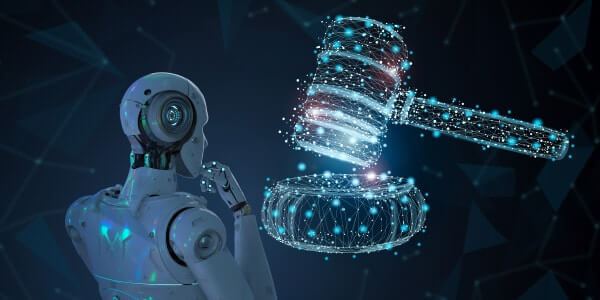Artificial Intelligence (AI) has been disrupting various industries, and the legal profession is no exception. With AI's ability to analyze vast amounts of data and identify patterns, it is no wonder that some have predicted that robots may replace lawyers and judges in the future. In this blog post, we will explore the potential impact of AI on the legal system.
Automating routine legal tasks
AI can automate many routine legal tasks, such as document review, contract analysis, and legal research. This can help reduce the workload of lawyers and improve the efficiency of the legal system. For example, AI can quickly search through millions of legal documents and identify relevant case law, which can help lawyers build stronger arguments and save time.
Predicting case outcomes
AI can also predict case outcomes with a high degree of accuracy. By analyzing past cases and identifying patterns, AI can help lawyers and judges make more informed decisions. This can help reduce the risk of bias and ensure that decisions are based on objective criteria.
Enhancing access to justice
AI can also enhance access to justice by providing legal assistance to those who cannot afford a lawyer. For example, chatbots can help individuals understand their legal rights and obligations and provide guidance on how to resolve legal issues.
Despite the many benefits of AI in the legal system, there are also concerns about its use. Some worry that AI could replace human judgment and discretion, leading to a loss of human empathy and understanding. Others worry about the potential for bias and discrimination, as AI algorithms are only as good as the data they are trained on.
To address these concerns, it is important to ensure that AI is used responsibly and ethically. This includes ensuring that AI is transparent and accountable, and that human oversight is maintained.
In conclusion, AI has the potential to transform the legal system by automating routine tasks, predicting case outcomes, and enhancing access to justice. While there are concerns about its use, these can be addressed through responsible and ethical implementation. As AI continues to evolve, we can expect to see even more innovative applications in the legal system in the years to come.
